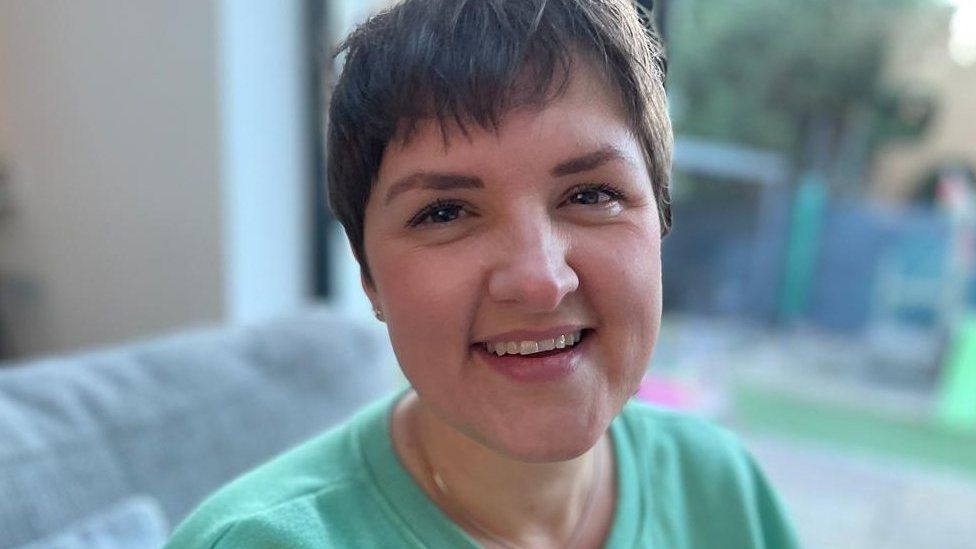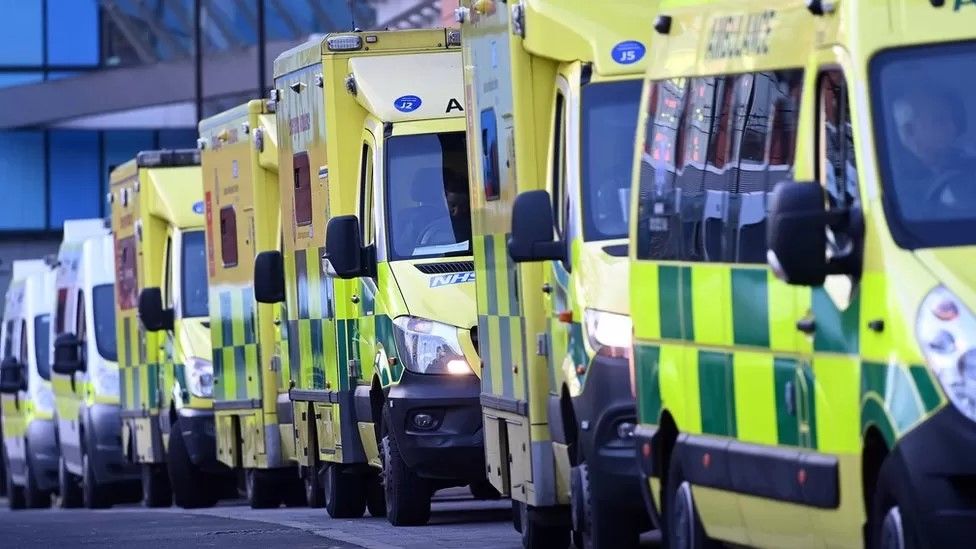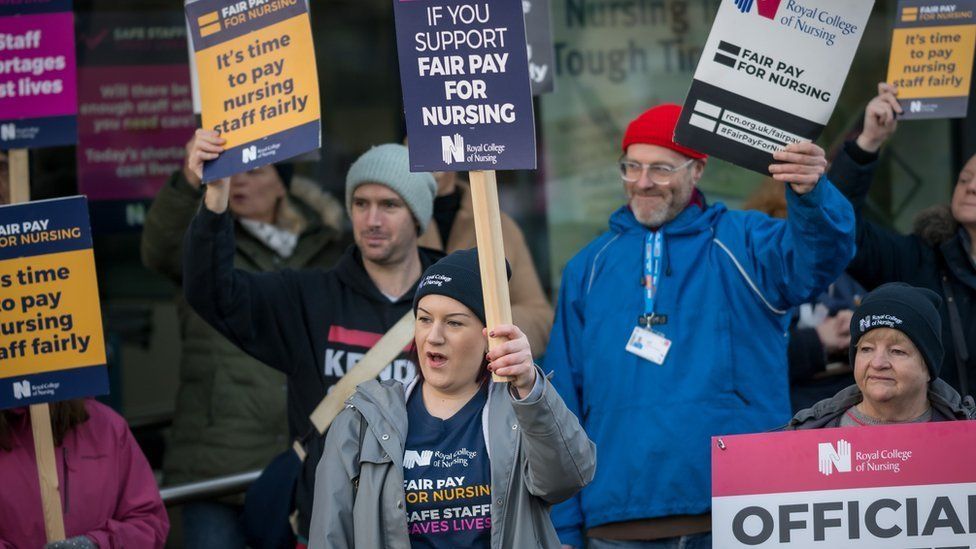This video can not be played
To play this video you need to enable JavaScript in your browser.
A mum was forced to rush her child to hospital by car during a seizure because of uncertainty about when an ambulance might arrive.
Niamh Andrews, five, had a seizure while practising gymnastics.
But when her mother, Victoria Andrews, phoned 999 the operator was unable to say when an ambulance crew would be available to help.
The Welsh government said it was implementing system changes to improve wait times.
Victoria and her daughter Niamh Andrews, who live in Cardiff, were at a free-play session at their local gymnastics club when the incident happened.
Niamh was playing on gymnastic bars when her lips turned blue and she began staring into the distance before slipping off the apparatus.
“I managed to grab hold of her and as she went to the ground I could see that her jaw had started to lock, she started to convulse and to have a seizure,” Ms Andrews said.
She feared autistic Niamh was choking.
“She went into a full-on convulsion,” Ms Andrews said.
On calling 999 the mum-of-one asked when an ambulance might arrive. The operator did not know.
Ms Andrews put Niamh in the recovery position and stayed on the line until Niamh stopped convulsing.

Ms Andrews said: “I asked if it would be quicker if we drove ourselves. At this time Niamh was still lying on the floor, still completely out of it.”
‘It was stomach-churning’
She and a friend rushed her to hospital, with Ms Andrews dubbing the experience “debilitating”.
The 37-year-old said: “When your child is unwell, and something is happening to them that is completely out of your control, and that you know would normally need medical assistance, it’s got to be the worst thing in the world.
“I’ve never felt stomach-churning like that. You’re so out of your depth.”
Ms Andrews knew when she dialled 999 they could be waiting for a long time.
But not getting an estimated time of arrival made it even more difficult.
“It’s hard knowing when you make that phone call there’s a chance that they won’t be able to respond to you,” she said.
It made life “that little bit more scary”.
Ms Andrews said: “I avoid certain activities knowing there’s a good chance something might happen and you may have to bundle your child into the car, or take them in [to hospital] yourself in a situation you never, ever want to be in.”
The average response time was 10 minutes in December – the slowest on record. The figures were released on a day in which 1000 ambulances workers were striking across Wales.
The Welsh government spokesman said: “Whilst we acknowledge emergency care performance is not where we expect it to be, we are driving system improvements, including extending same-day emergency care services to open seven days a week, improving management of 999 patients on the phone, and recruiting more staff.
“Without all this the pressure on the system would be even greater.”
-
Ambulance strike badly disrupted service – bosses
-
50 minutes ago

-
-
Record lows in response times as 999 calls rise
-
10 minutes ago

-
-
New nurses’ strike dates confirmed
-
2 days ago

-
